Are you considering a job opportunity that requires you to move? Expressing your willingness to relocate can make a great impression on potential employers. In this article, we'll explore how to craft a compelling letter that conveys your enthusiasm and readiness for a new adventure. So, let's dive in and discover the essential tips to make your relocation letter stand out!

Greeting and Introduction
Relocating for career opportunities presents a significant step towards personal and professional growth. Many companies, such as tech giants in Silicon Valley or financial institutions in New York City, offer roles requiring employees to move. Recent studies indicate that 60% of professionals are willing to relocate for a job that offers advancement potential. Factors influencing this decision may include higher salaries, enhanced job responsibilities, or a better work-life balance in cities known for their thriving job markets. Furthermore, relocating often provides exposure to diverse cultures and networking opportunities that can enrich one's career path.
Statement of Willingness
A statement of willingness to relocate expresses a strong commitment to adapt to new geographical challenges for professional opportunities. Candidates indicate readiness to move to different cities like New York or San Francisco, renowned for their job markets in technology or finance. Highlighting flexibility, individuals may express an eagerness to embrace diverse cultures and environments, ensuring a smooth transition into workplaces. Employers often seek candidates with a proactive attitude, ready to take on changes in lifestyle, commute patterns, and community engagement, ultimately enhancing their workforce's dynamism and versatility.
Justification for Relocation
Relocation presents a significant opportunity for personal and professional growth, particularly for individuals eager to embrace new challenges in diverse environments. For instance, relocating to tech hubs like Silicon Valley (California), offers immersive experiences in innovation and networking opportunities with industry leaders. This move can facilitate career advancement in fields such as software engineering or data analytics, which thrive in these dynamic locales. Furthermore, adjusting to different cultural contexts can enhance interpersonal skills and adaptability, inviting a wider range of collaboration techniques and perspectives. Practical considerations include improved quality of life, access to advanced resources, and participation in community initiatives that contribute to both personal fulfillment and career success.
Professional Alignment and Benefits
Relocating for career opportunities can enhance professional growth and align personal goals with organizational objectives. Increased market potential exists in cities like San Francisco, known for its thriving tech industry, or New York, a hub for finance and media. Companies frequently offer relocation packages, which may include moving expenses, temporary housing, and support services, facilitating a smooth transition. Establishing connections in new regions can lead to collaborative projects and enhanced networking opportunities. Benefits of relocation may also encompass higher salaries and improved job satisfaction in dynamic environments, making the move a strategic decision for career advancement.
Closing and Contact Information
Demonstrating a willingness to relocate involves highlighting readiness for new opportunities and adaptability to different environments. Prospective employers often appreciate engagement in various regions such as metropolitan areas like New York City or San Francisco, where job markets are robust. Candidates may mention flexibility regarding travel, adjusting to varied work cultures, or transitioning family life to new settings. Additionally, showcasing quick adaptability to local customs or networking within the community can strengthen the candidate's position. Ending communication with clear contact information, including phone numbers and email addresses, ensures streamlined follow-up discussions, thereby reflecting professionalism and commitment to the relocation.
Letter Template For Expressing Willingness To Relocate Samples
Letter template of indicating preparedness to move for job responsibilities.
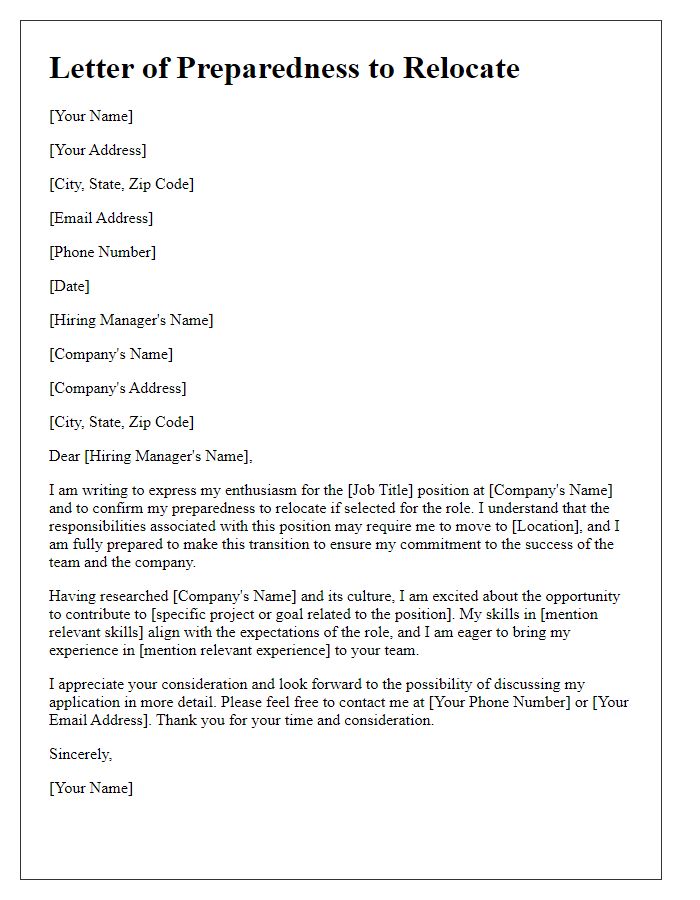

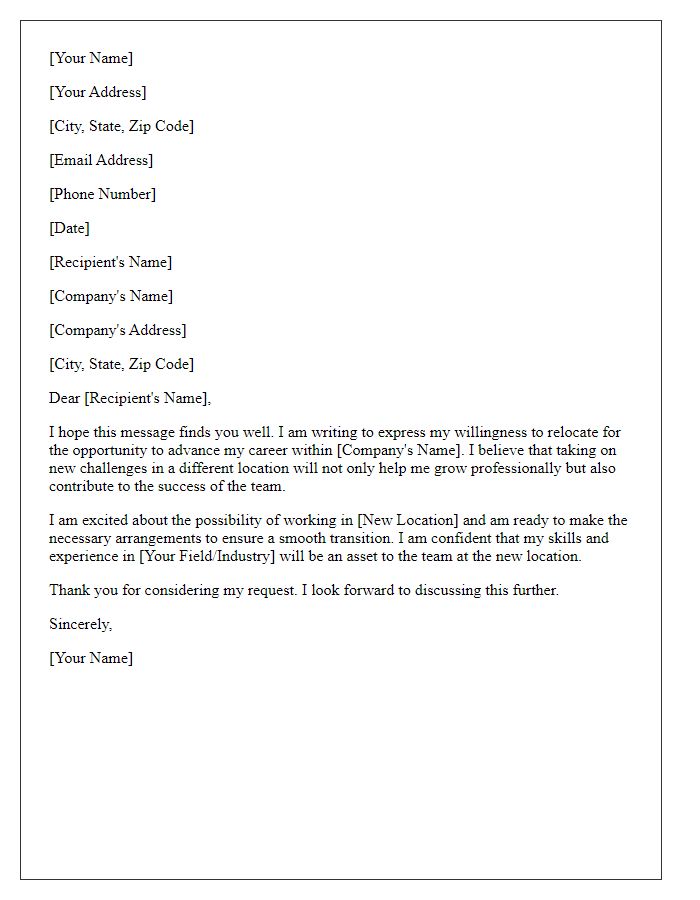
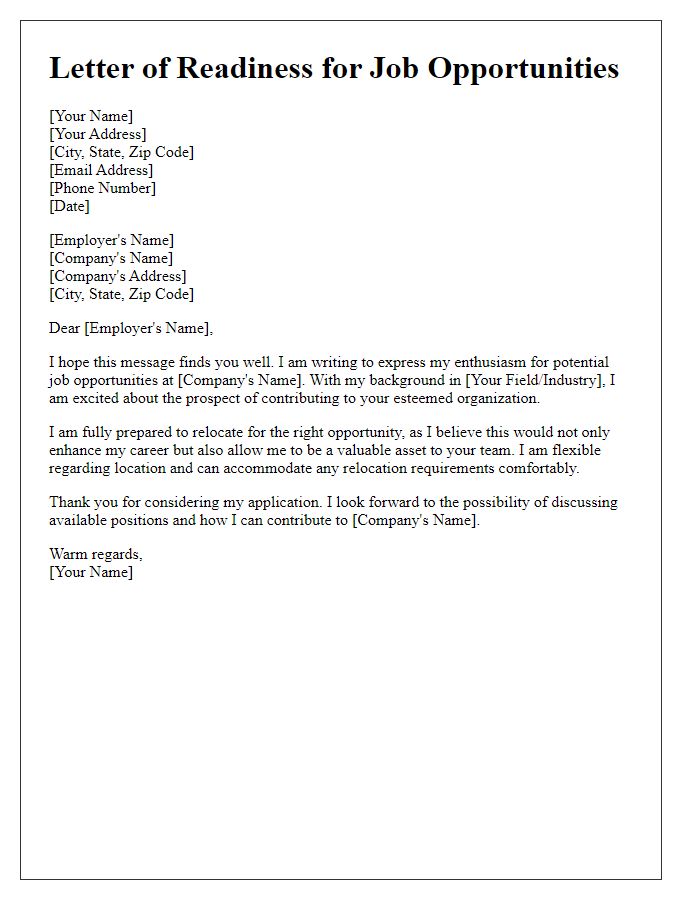
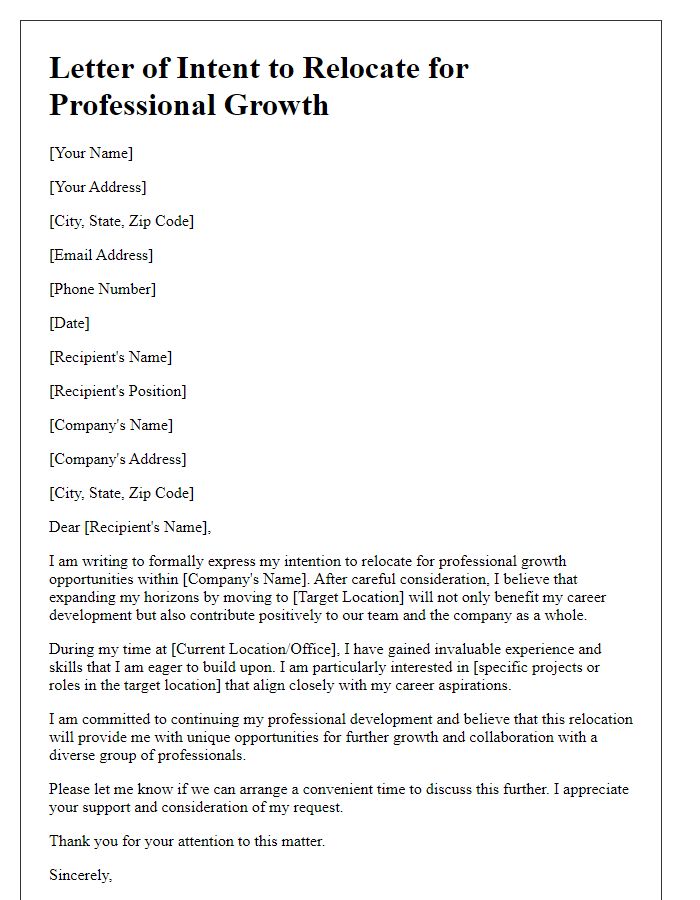
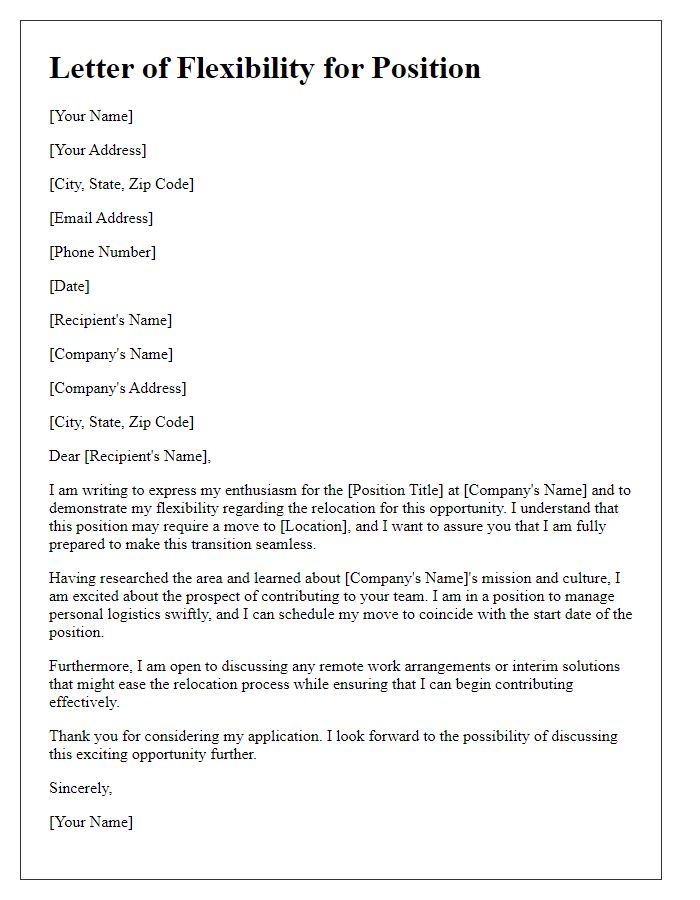
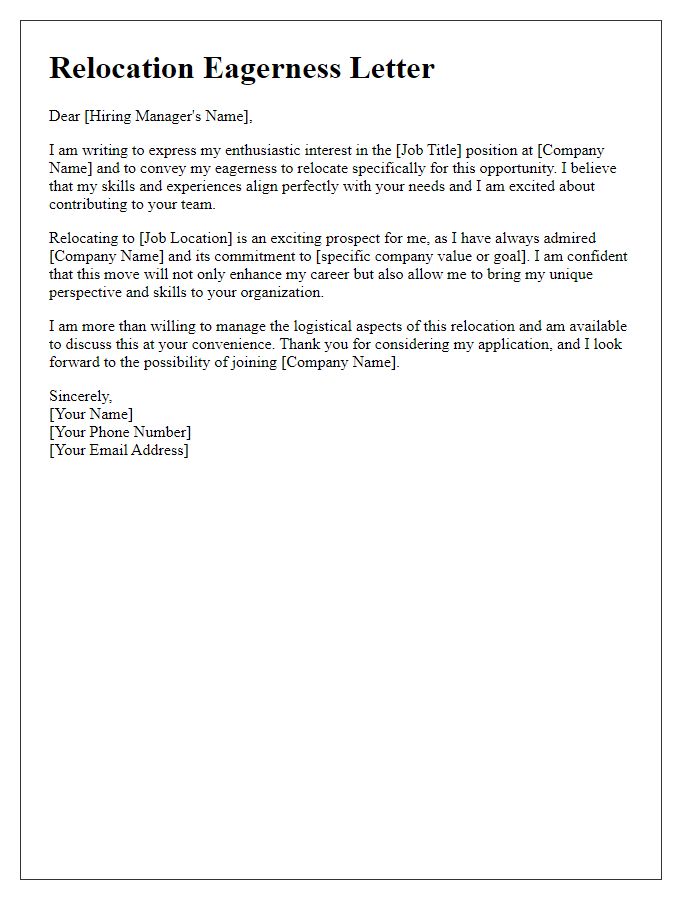
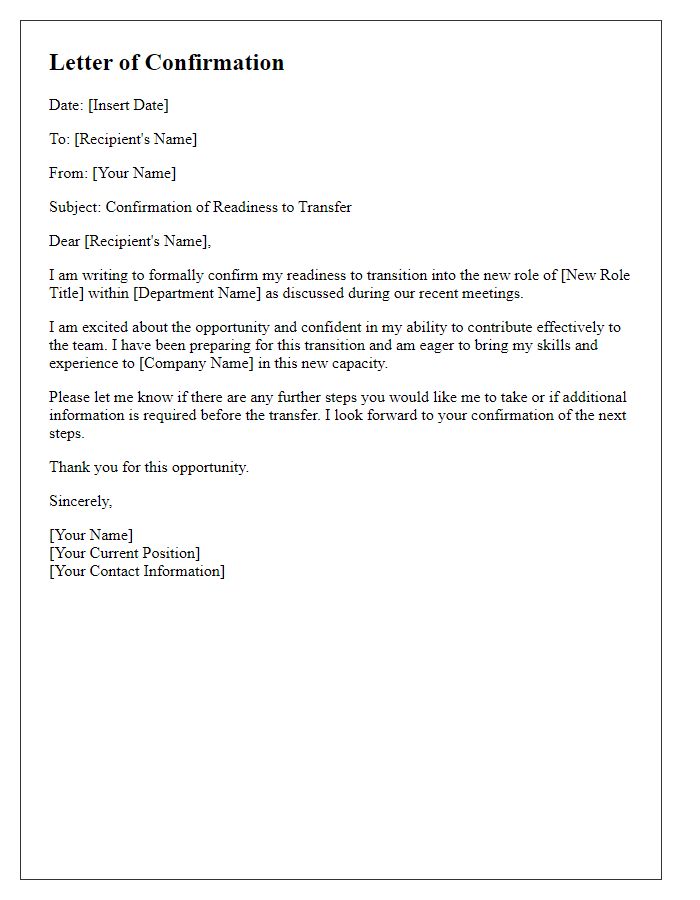
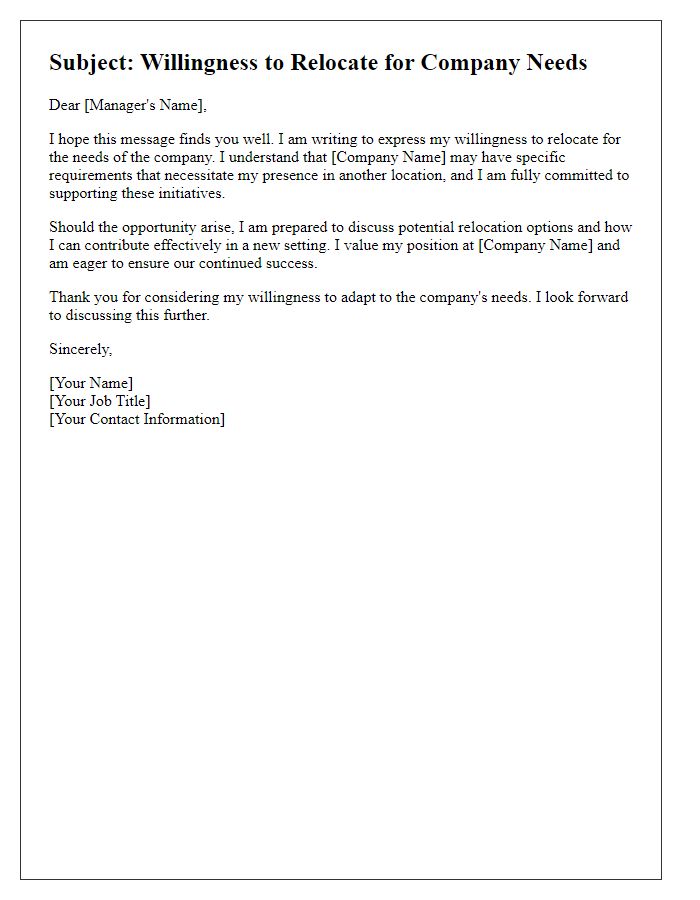
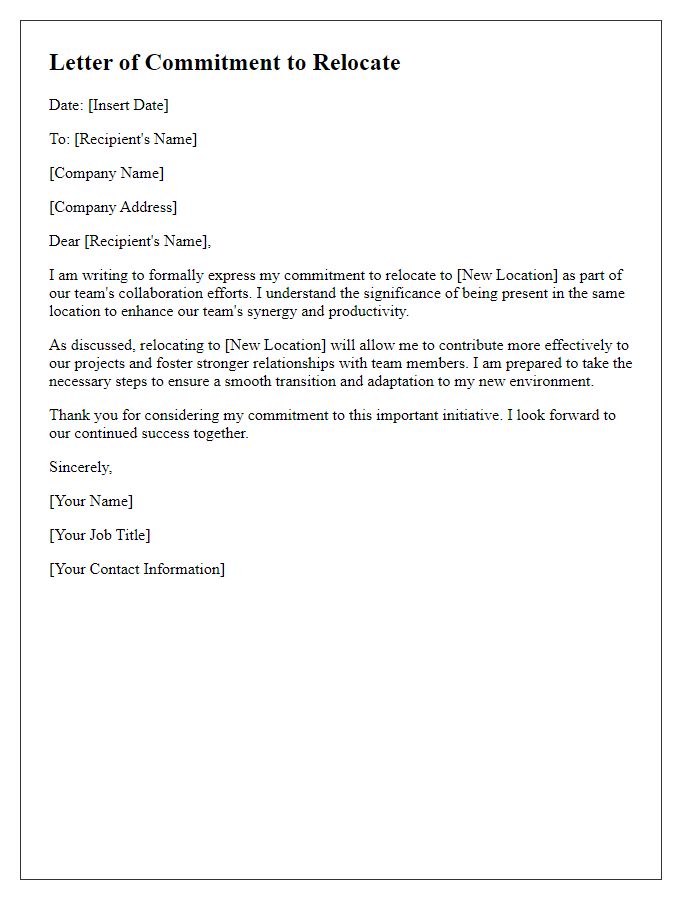
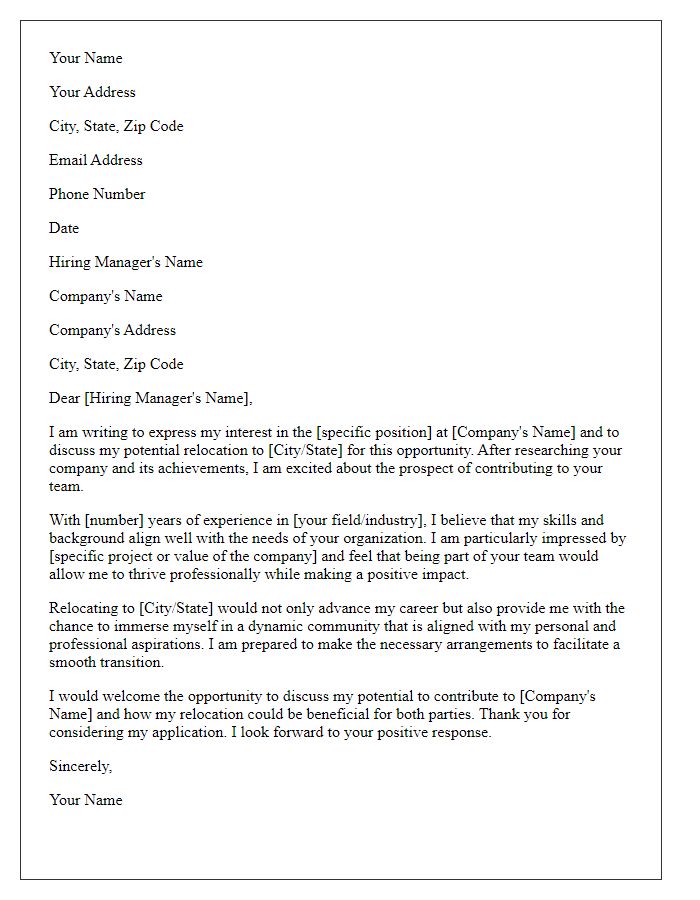


Comments